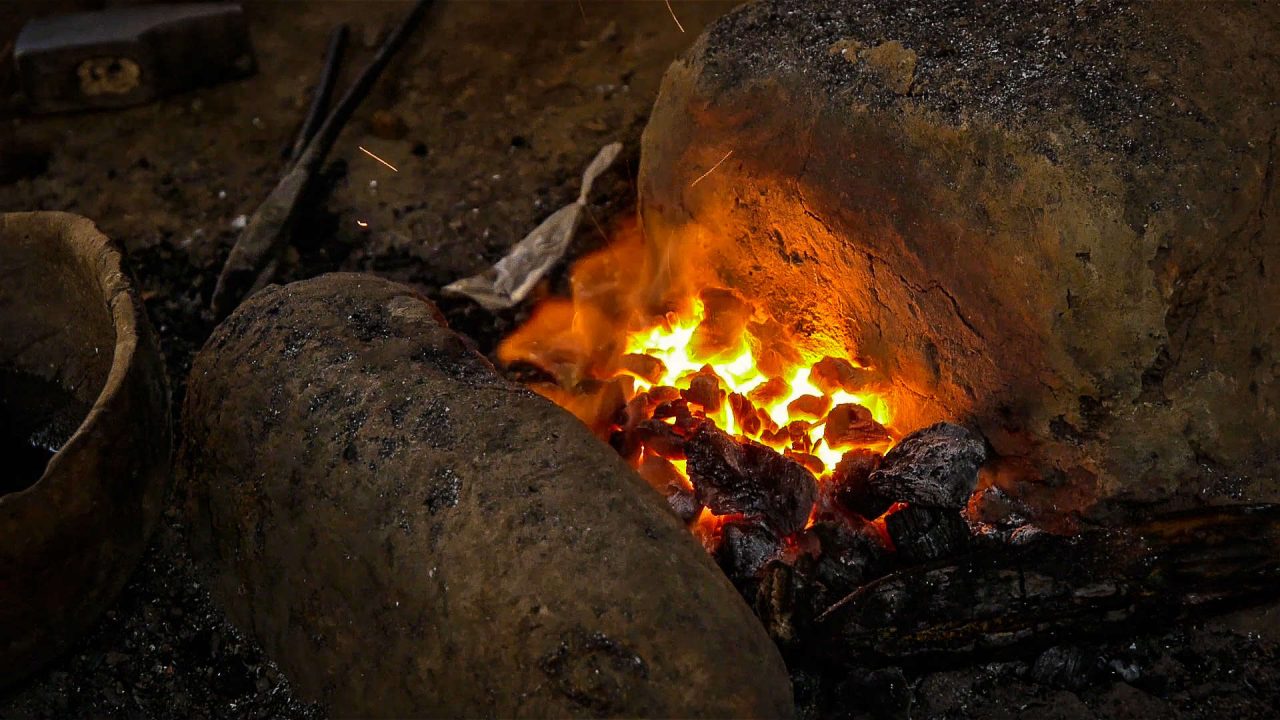Numuya – The blacksmiths of Koko

When on fieldwork in Burkina Faso, working on donso hunters and their knowledge of the bush, I found myself to need a shotgun in order to join the hunters in their outings. In Bobo Dioulasso I came across Boubacar Traoré, who comes from a Jula family of blacksmiths. He sold me a locally made 12-gauge shotgun, a copy of a French Simplex model. I learnt from him that the shotgun was handmade, and he told me about his family’s workshop in the neighbourhood of Koko, not far from the Great Mosque in Dioulassoba. In particular his father Bafetigué was a renown gunsmith and his extended family had blacksmithing workshops all next to each other in the area.
In Mande Africa blacksmiths (numuw) form an endogamous group that is sometimes referred to as a caste – although the term is inaccurate. They traditionally have the monopoly on the production of metal and often wooden objects, but used to live and have their workshops at the margins of the village. They also took up the roles of healers, sorcerers and ritual specialists (most notably performing circumcisions). To know more, the classic reference on the topic is Patrick McNaughton’s 1988 book The Mande Blacksmiths. Knowledge, Power and Art in West Africa.
Endogamy is still practiced and makes sure that most blacksmiths in Koko are related to each other. Yet family relationships don’t mean that everything runs smoothly, and it filtered through some of Boubacar’s comments how money would set the blacksmiths one against the other. But the traditional role of numuya in Mande societies and the kinship relations between the blacksmiths make of their profession more than a simple trade, rather a family heritage – even though not all those of numu ancestry end up working at the forge.
It was also interesting to follow the role of technology and creativity in a workshop where a type of musket that was developed at the beginning of the 19th century is still commonly manufactured. Boubacar, from his perspective of entrepreneur educated in France, touches upon the role of apprenticeship, orality and writing in the transmission of blacksmith knowledge and demonstrates his father’s innovative creation, the Burkina Marfa 84 multifunctional pistol.
This short documentary will be released as part of the extra content of my documentary Kalanda – The Knowledge of the Bush.
Finally, this is the scan of the article Boubacar refers to at the end of the video. It is from the magazine Cibles n.187, October 1985, text and photos by Jean-Jacques Pietraru and Philippe Migaux. I hope there is no problem reproducing it here, but if this is not the case the copyright holders can contact me here.

[…] they are held capable of tricking the hunter with magic. I filmed this material at the same time as the other short I realised with Boubacar, Numuya. This short screened at Manchester’s Home cinema as part of Filmed Up in June 2015. Part of […]